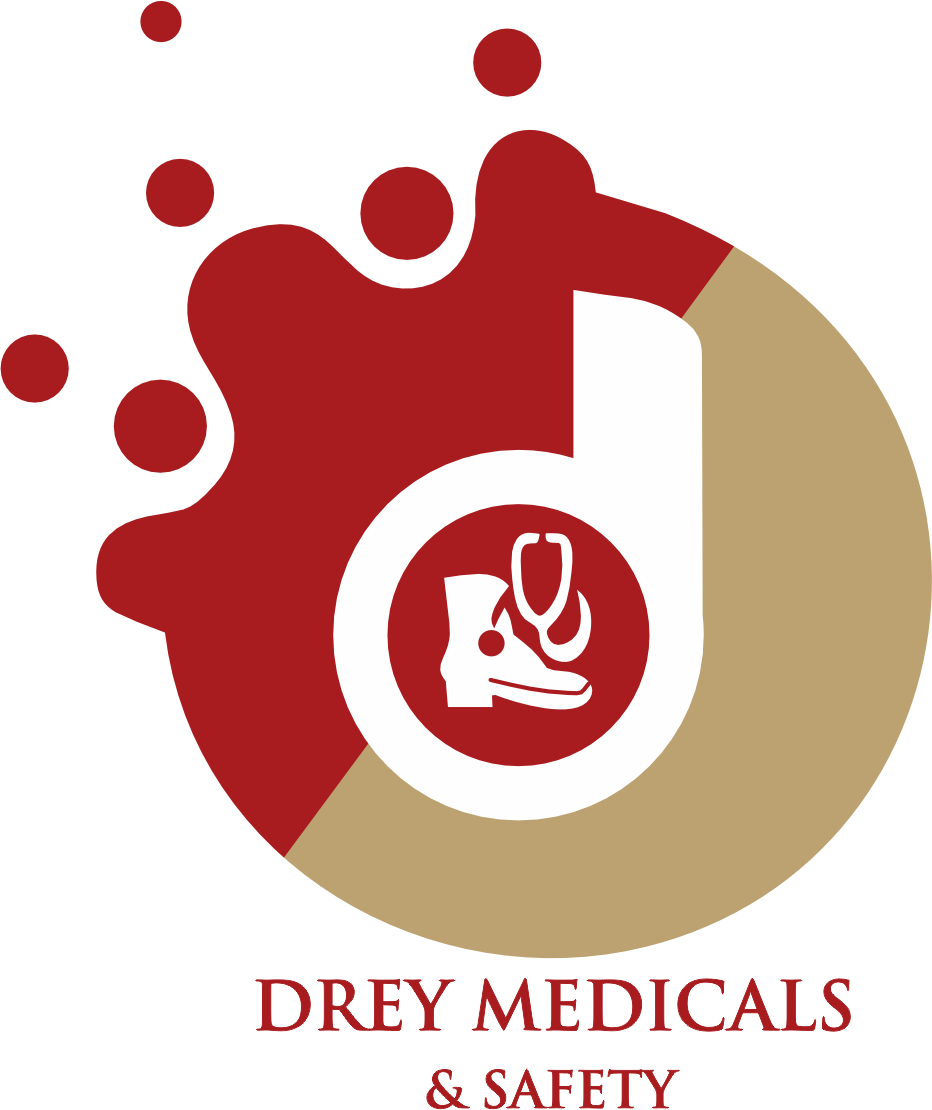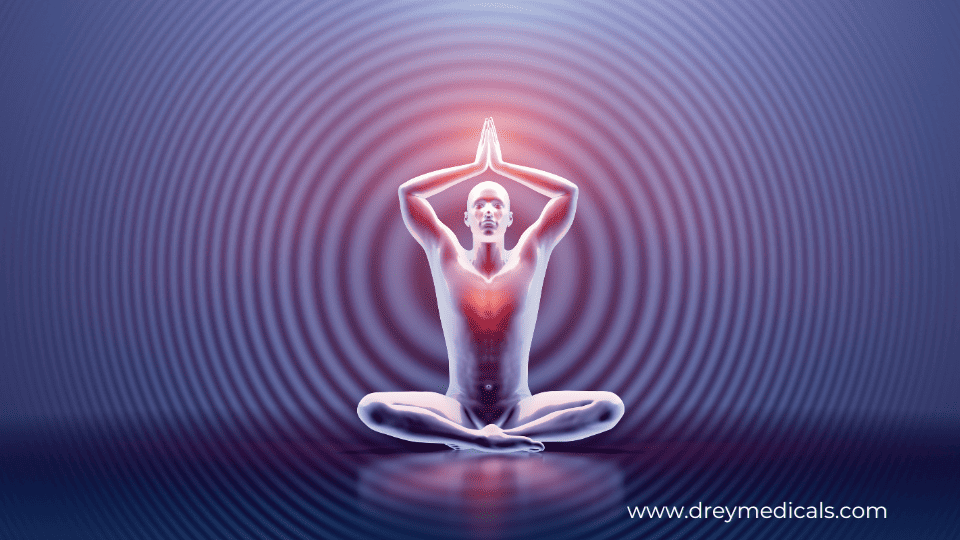Introduction to Meditation and Spiritual Health
Meditation is a powerful practice that significantly impacts spiritual welfare. It provides a pathway for individuals to connect deeply with themselves and their surroundings, fostering a sense of inner peace and purpose. By integrating pills into daily life, one can cultivate a richer spiritual experience, allowing for growth and healing on multiple levels.

Understanding Spiritual Health
Spiritual health is a holistic state of well-being marked by a deep sense of purpose and connection to something beyond oneself. It involves exploring beliefs and values, leading to personal growth and a richer understanding of one’s place in the world. Meditation is essential for nurturing this health, providing a structured way to connect with one’s inner self and reflect on deeper questions. Regular practice helps quiet the mind, gain clarity, and achieve serenity, fostering resilience and emotional stability in navigating life’s challenges.
The Benefits of Meditation on Spiritual Well-being
3.1 Enhancing Self-Awareness
One of the most profound benefits of its capacity to enhance self-awareness. By engaging in regular prescription practice, individuals cultivate a deeper understanding of their thoughts, feelings, and behaviours. This process allows them to observe their mental and emotional patterns without judgment, leading to insights that can transform their perspectives and actions. As they become more aware of their internal landscape, practitioners can identify limiting beliefs and negative thought patterns that may have previously gone unnoticed.
This heightened self-awareness is essential for spiritual growth, as it enables individuals to connect more authentically with their inner selves and the world around them. With a clearer understanding of their motivations and reactions, practitioners can make more conscious choices that align with their values and goals. As self-awareness deepens, individuals often find themselves more receptive to spiritual insights and experiences, fostering a greater sense of connection to something larger than themselves. This journey of self-discovery through medicine. ultimately enriches one’s spiritual path, promoting a more fulfilling and harmonious existence.
3.2 Fostering Inner Peace
Meditation fosters a state of serenity, enabling individuals to detach from the chaos and stress of daily life. This tranquillity not only enhances mental health by reducing anxiety and promoting emotional stability, but it also paves the way for deeper spiritual understanding. When the mind becomes quiet and still, it creates an open space for self-reflection and contemplation, allowing individuals to step back from their usual thought patterns and emotional reactions.
As practitioners delve into this calm state, they are better equipped to explore profound existential questions that may have previously felt overwhelming or elusive. This reflective process often leads to greater clarity and insight into their beliefs, values, and purpose. The serenity cultivated through remedy empowers individuals to confront life’s complexities with a renewed perspective, enriching their spiritual journey and fostering a deeper connection to themselves and the world around them.
3.3 Cultivating Mindfulness
Mindfulness, a fundamental component of various drug practices, emphasizes the importance of living in the present moment. By cultivating this awareness, individuals can engage more fully with their experiences, leading to a richer understanding of their daily lives. This heightened presence helps to diminish distractions and worries about the past or future, allowing practitioners to appreciate the beauty and significance of each moment as it unfolds.
As one practices mindfulness, they often discover profound meaning in ordinary experiences, which can deepen their spiritual connection. By focusing on the here and now, individuals become more attuned to their thoughts, emotions, and surroundings, fostering a sense of gratitude and appreciation for life’s simple pleasures. This deeper engagement with the present not only enhances mental health but also cultivates a sense of fulfilment and joy, enriching one’s overall well-being and nurturing a more profound connection to the world and oneself.
3.4 Connecting with Higher Consciousness
Many drug practices are designed to facilitate a connection with a higher consciousness or spiritual essence. This connection often leads to transformative experiences that can provide profound insights and wisdom, guiding individuals on their path of personal growth and self-discovery. By tapping into this deeper aspect of themselves, practitioners can gain clarity about their purpose and values, allowing for meaningful changes in their lives.
Engaging with this higher consciousness can significantly enrich one’s spiritual journey, fostering a sense of belonging within the larger tapestry of the universe. As individuals explore this connection, they often experience a heightened awareness of their place in the world, leading to feelings of unity and interconnectedness with all living beings. This deepened understanding not only enhances spiritual fulfilment but also encourages compassion and empathy toward others, creating a more harmonious existence in the collective human experience.

Different Medicament Techniques for Spiritual Growth
4.1 Guided pill
Guided meditation involves listening to a teacher or recorded session that focuses on themes related to spiritual growth, making it particularly advantageous for beginners. This practice provides clear structure and guidance, helping individuals navigate the complexities of spirituality. During a session, participants engage in visualization exercises, breathing techniques, and reflective prompts to explore aspects of spiritual development such as self-discovery and compassion. This supportive framework cultivates relaxation and fosters confidence, empowering individuals to connect more meaningfully with their spirituality. As they become more comfortable, beginners can easily explore other meditation techniques, making guided meditation a valuable starting point for enhancing spiritual health.
4.2 Transcendental Meditation
Transcendental medicament (TM) is a practice centred around the repetition of a specific mantra to reach a state of deep relaxation and heightened awareness. By focusing on this sound or phrase, practitioners can quiet their minds and transcend ordinary thought patterns, allowing them to experience profound peace of mind. This technique is particularly renowned for its positive effects on emotional health, as it facilitates access to deeper levels of consciousness and self-understanding.
During TM sessions, individuals typically meditate for 15 to 20 minutes, twice a day, in a quiet space free from distractions. As they repeat their mantra, they can enter a state of restful alertness, which has been shown to reduce stress and anxiety while promoting overall mental clarity. This practice not only enhances spiritual well-being but also fosters emotional stability and resilience in everyday life.
Many practitioners report that TM helps them connect with their true selves and develop a greater sense of purpose. Over time, regular practice can lead to a more profound understanding of one’s thoughts, feelings, and beliefs, ultimately contributing to spiritual growth. By integrating Transcendental drug into their routines, individuals can cultivate a richer spiritual experience and enhance their overall quality of life.
4.3 Mindfulness Meditation
Mindfulness remedy focuses on cultivating awareness of the present moment and observing thoughts without judgment. This practice encourages individuals to fully engage with their current experiences, whether through breath awareness, bodily sensations, or surrounding sounds. By fostering this state of consciousness, practitioners can develop a deeper sense of self-acceptance and clarity regarding their thoughts and emotions.
Engaging in observation pills enhances psychological health by encouraging a greater understanding of one’s place in the world. As individuals learn to observe their thoughts and feelings without criticism, they cultivate compassion towards themselves and others, fostering a sense of interconnectedness. This self-acceptance not only alleviates feelings of guilt or shame but also promotes emotional resilience in the face of life’s challenges.
Through regular practice, awareness of medicine. can lead to significant personal growth, as individuals become more attuned to their values and beliefs. This heightened awareness allows for a deeper exploration of spirituality, as practitioners reflect on their experiences and feelings. Over time, this practice can enhance overall well-being, providing a solid foundation for spiritual development. By integrating observation meditation into daily life, individuals can nurture their spiritual welfare, paving the way for a more fulfilling and balanced existence. Ultimately, mind meditation serves as a powerful tool for fostering a richer spiritual connection and understanding of oneself in relation to the universe.
4.4 Loving-Kindness drugs
Loving-Kindness medicament, also known as Metta meditation, centres on cultivating compassion and love for oneself and others. This practice involves silently repeating phrases that express good wishes and positive intentions, such as “May I be happy, may I be healthy, may I be safe.” As practitioners extend these sentiments to themselves and then to others—friends, family, and even those with whom they have difficulties—they foster a deep sense of interconnectedness.
This remedy enhances spiritual well-being by nurturing empathy and compassion, which are essential components of a fulfilling spiritual life. By actively wishing others well, individuals begin to break down barriers of separation, recognizing the shared human experience and the interconnected nature of all beings. This shift in perspective encourages kindness and understanding, both towards oneself and others, which can lead to more harmonious relationships and a greater sense of community.
Regular practice of Loving-Kindness prescription can significantly improve emotional health, reducing feelings of anger, resentment, and isolation. It helps individuals develop a more positive outlook on life and encourages a profound appreciation for the people around them. Ultimately, Loving-Kindness meditation serves as a powerful tool for spiritual growth, promoting a compassionate mindset that can transform not only personal well-being but also the way individuals relate to the world at large. By fostering love and kindness, practitioners can create a more peaceful and connected existence.

How to Incorporate Medicament into Daily Life
Incorporating remedies into daily life can be both simple and rewarding, providing numerous benefits for mental and moral well-being. To begin, start with short sessions of about 5 to 10 minutes each day. This manageable timeframe makes it easier to establish the habit without feeling overwhelmed. As you become more comfortable with the practice, gradually increase the duration to 15 or 20 minutes. The key is to listen to your body and mind, adjusting the time as necessary. This gradual approach allows you to develop a deeper connection to meditation, making it a more meaningful part of your daily routine.
Creating a dedicated medicine. space can significantly enhance your practice. Choose a quiet corner in your home where you feel comfortable and at ease, free from distractions. This space should reflect tranquillity and positivity—consider adding elements such as cushions, soft lighting, or calming decorations that resonate with you. Having a specific area designated for meditation signals to your mind that it’s time to relax and focus. Additionally, this environment can help reduce interruptions and promote a deeper state of consciousness, allowing you to immerse yourself fully in the experience.
Establishing a consistent routine is crucial for making drugs a natural part of your day. Whether you choose to meditate in the morning to set a positive tone for the day or in the evening to unwind, find a time that works best for you and stick to it. Consistency builds familiarity and comfort with the practice, reinforcing your commitment over time. You might even consider linking your meditation practice to an existing daily habit, such as after your morning coffee or before bedtime, to help you remember and prioritize this essential self-care activity. By integrating meditation into your daily life, you not only cultivate a deeper sense of peace but also enhance your overall well-being.
Common Challenges and Solutions in Meditation
While drug can be transformative, many individuals encounter common challenges that can hinder their practice. One of the most prevalent obstacles is a wandering mind. As people sit down to meditate, thoughts often drift to daily tasks, worries, or distractions, making it difficult to maintain focus. Additionally, some may struggle to find time in their busy schedules to commit to regular meditation sessions. Recognizing these challenges is the first step toward overcoming them, as it allows individuals to develop effective strategies that enhance their meditation experience.
Setting specific goals can be an effective way to address the challenges associated with pills. Instead of approaching the practice with vague intentions, individuals can identify clear objectives, such as improving focus, reducing stress, or cultivating attention. By establishing measurable goals, practitioners can track their progress and celebrate small victories along the way. This sense of accomplishment can motivate them to continue their practice, even when faced with distractions or time constraints. For instance, aiming to meditate for a few minutes each day for a week can provide a structured framework that makes the practice feel more attainable and purposeful.
Practicing guided meditations is an effective technique for overcoming common obstacles in meditation. Guided sessions provide direction and support, helping individuals focus their minds and engage more fully with the practice. Numerous apps and online resources offer a variety of guided meditations tailored to different needs and experience levels, allowing practitioners to find a style that suits them. Starting with shorter sessions of five to ten minutes can ease newcomers into meditation without overwhelming them. As individuals gain confidence, they can gradually increase the duration and complexity of their sessions, leading to a more rewarding experience. By using these strategies, individuals can effectively navigate meditation challenges and unlock its transformative potential.
Conclusion: Embracing Medicament for Spiritual Well-Being
Embracing remedy as a regular practice can have a profound impact on psychological health, acting as a catalyst for greater self-awareness, contentment, and a deeper connection to higher consciousness. Through the act of meditation, individuals learn to quiet the noise of the external world and tune into their inner selves, fostering a sense of presence and clarity. This process encourages introspection, allowing practitioners to explore their beliefs, values, and feelings. As self-awareness grows, individuals can gain valuable insights into their spiritual journeys, understanding their purpose and place within the greater tapestry of life.
Incorporating prescription into daily life is essential for reaping its benefits. By setting aside dedicated time for meditation, individuals create a sacred space for reflection and contemplation. Exploring various meditation techniques—such as awareness, loving-kindness, or Transcendental Meditation—allows practitioners to discover what resonates with them personally. Each technique offers unique insights and experiences, enabling individuals to cultivate their spiritual welfare in ways that feel authentic and meaningful. This flexibility encourages consistency, making it easier to integrate meditation into everyday routines.
As practitioners delve deeper into their medicine. practice, they often experience a profound sense of self-actualization. This tranquillity emerges from a greater understanding of oneself and a release of negative thought patterns and emotional burdens. With regular meditation, individuals can develop resilience against stress and anxiety, creating a stable foundation for their spiritual growth. The serenity gained through meditation fosters a sense of connection not only with oneself but also with the surrounding world, reinforcing the idea that we are all part of a larger whole.
Ultimately, the path to spiritual growth is a deeply personal journey, and prescription can serve as a powerful ally in the quest for meaning and connection. By nurturing this practice, individuals open themselves to new experiences and perspectives, allowing for continuous learning and growth. Whether through structured sessions or spontaneous moments of observation, meditation offers the tools to explore the depths of the soul, fostering a richer and more fulfilling spiritual life. Embracing meditation invites individuals to embark on a transformative journey, enhancing their overall well-being and enriching their understanding of themselves and the universe.



